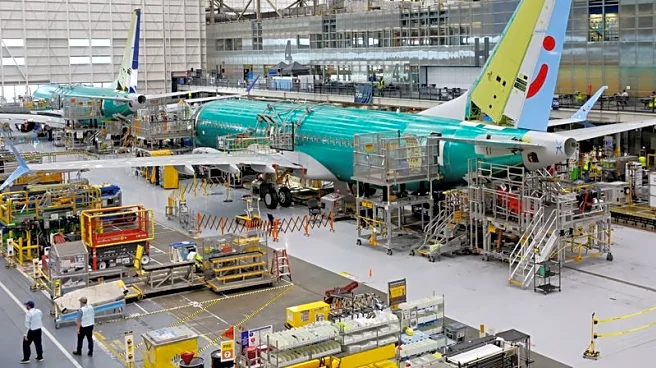Rapid Read • 6 min read
Nigeria's minimum wage was increased to ₦70,000 in July 2024, marking a 133% rise from the previous ₦30,000. This increase was intended to protect workers from inflation and the depreciating naira. However, a report by Dataphyte reveals that inflation has reduced the real value of the minimum wage to ₦55,379 within a year. Despite an official claim of an 84% drop in inflation in the first half of 2025, the cost of living remains high, with essential goods and services still expensive. The Nigerian Labour Congress and workers argue that the wage increase is insufficient to meet basic living needs.
AD
The situation highlights the challenges faced by Nigerian workers in maintaining their purchasing power amid economic instability. The wage increase, although significant, has not kept pace with inflation, leading to a decrease in real income. This affects the ability of families to afford necessities such as food, shelter, and transportation. The ongoing economic difficulties could lead to increased pressure on the government to implement further measures to stabilize the economy and support workers.
The Nigerian government may face demands for additional wage adjustments or economic interventions to address the disparity between wages and living costs. Labor organizations might push for more frequent reviews of the minimum wage to ensure it reflects current economic conditions. The government could also explore policies to curb inflation and strengthen the naira to improve the purchasing power of its citizens.
AD
More Stories You Might Enjoy













